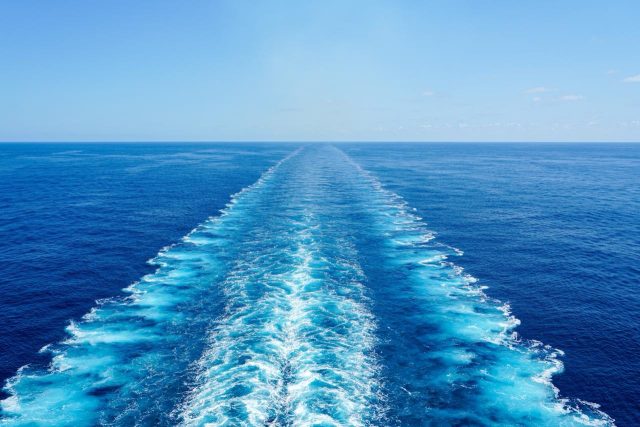
Rome balances humanitarian concerns and strategic caution in a high-stakes Mediterranean mission
Italy has stepped decisively into the center of a volatile Mediterranean drama, announcing the deployment of a second naval vessel to safeguard the Global Sumud Flotilla. On September 25, Italian Defense Minister Guido Crosetto confirmed that the warship will join an earlier frigate already dispatched to monitor and protect a civilian convoy attempting to challenge Israel’s naval blockade. The flotilla—consisting of roughly 50 civilian boats and carrying international activists, including climate campaigner Greta Thunberg—is seeking to deliver humanitarian aid to Gaza in defiance of Israeli restrictions.
The decision underscores Italy’s growing willingness to assert a leadership role in a complex regional crisis, balancing its commitment to humanitarian principles with the imperatives of security and diplomacy. It also highlights the increasingly dangerous environment in which the flotilla operates, as participants face drone attacks, crowd-control grenades, and other forms of intimidation.
A Mission Marked by Risk and Resolve
The Global Sumud Flotilla set sail with a clear purpose: to challenge the Israeli naval blockade by delivering aid directly to Gaza. The mission quickly became perilous. According to reports, the first Italian frigate was dispatched after a wave of hostile actions, including the use of stun grenades and irritant powders against the civilian boats. In recent days, drone harassment has further escalated tensions, prompting Rome to strengthen its protective presence at sea.
Minister Crosetto framed the second deployment as both a precautionary measure and a signal of Italian resolve. “The risks of entering foreign waters are serious,” he warned, cautioning participants about the dangers they face while underscoring Italy’s responsibility to protect its citizens and ensure international law is respected.
Italy is not alone in this effort. Spain has also sent a naval vessel to the area, reflecting broader European concern over the safety of activists and the humanitarian stakes of the mission. But Italy’s actions stand out for their speed and clarity, projecting both moral commitment and operational capability.
Diplomacy on a Knife’s Edge
Israel, for its part, has urged the flotilla to deliver aid to designated Israeli ports rather than attempting to breach the blockade. Israeli officials insist that humanitarian supplies can be inspected and transferred through established channels, a position supported by security concerns but rejected by many activists as an unnecessary obstacle to urgently needed relief.
Italy’s involvement adds a new layer of diplomatic complexity. By protecting a flotilla that openly defies Israeli directives, Rome risks straining relations with a key regional partner. At the same time, Italy has carefully avoided taking sides in the broader Israeli-Palestinian conflict, presenting its naval mission as a neutral effort to safeguard human life and uphold freedom of navigation.
This delicate balancing act is emblematic of Italy’s broader Mediterranean strategy. As a frontline European Union member with historic ties across the region, Italy seeks to act as both mediator and guarantor of humanitarian norms. Deploying naval assets allows Rome to back its words with concrete action while maintaining a posture of strategic caution.
Humanitarian Commitment Meets Strategic Calculus
Italy’s response reflects a nuanced understanding of modern crisis management. By sending warships, Rome demonstrates that humanitarian missions cannot succeed without security. The presence of Italian naval forces offers a measure of protection against attacks, deterring potential aggressors and providing rapid-response capabilities in case of emergency.
At the same time, Italian officials have emphasized the limits of their mission. The warships are not there to provoke confrontation or to assist in any illegal crossing of territorial waters. Instead, they serve as a shield for civilian vessels operating in international waters, a role that aligns with Italy’s obligations under maritime law and its tradition of humanitarian engagement.
The deployment also signals confidence in Italy’s naval capabilities and its willingness to share responsibility for regional stability. As tensions rise and the risk of miscalculation grows, Italian ships offer a visible reminder that Europe is not a passive observer of Mediterranean crises.
A Test of Europe’s Role in the Mediterranean
The Global Sumud Flotilla episode is more than a single humanitarian mission; it is a test of Europe’s capacity to act decisively in its own neighborhood. Italy’s proactive stance, supported by Spain’s parallel deployment, suggests that European states are prepared to defend humanitarian principles even in contested waters.
For Italy, the stakes are particularly high. Success would enhance Rome’s credibility as a regional stabilizer and humanitarian advocate. Failure—or escalation—could strain alliances and inflame already fragile dynamics in the Middle East.
As the second Italian warship takes up its position alongside the flotilla, the world watches closely. Italy’s challenge is to protect civilians, uphold international norms, and avoid becoming entangled in a conflict where every move carries profound political consequences. In the turbulent waters of the eastern Mediterranean, Italy is proving that principled action and strategic prudence can—and must—sail together.



 Subscribe
Subscribe